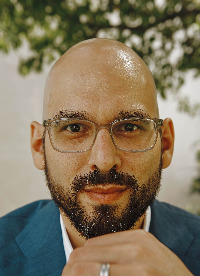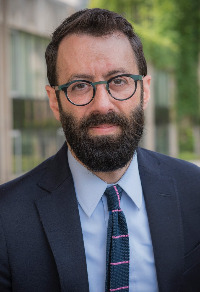Criminal Law and the American Penal System: Cases and Context, First Edition
Criminal Law and the American Penal System: Cases and Context, First Edition
Buy a new version of this textbook and receive access to the Connected eBook with Study Center on Casebook Connect, including lifetime access to the online ebook with highlight, annotation, and search capabilities. Access also includes practice questions, an outline tool, and other helpful resources. Connected eBooks provide what you need most to be successful in your law school classes.
This exciting new casebook by Andrew Crespo and John Rappaport encourages students to see how criminal law shapes prosecutorial and police power—and how it is both shaped by and reconstitutes hierarchies of race, class, and gender.
The role of criminal law in shaping a just society is more vital—and more complex—than ever before. This groundbreaking casebook reimagines the traditional framework of how Criminal Law is taught in order to connect core doctrinal concepts to the deeper questions that actually drive American punishment: How does law shape the institutional power of key law enforcement actors—prosecutors and police officers? How is this law shaped by a set of overlapping and interacting social hierarchies, along dimensions of race, gender, and class? How, in turn, do criminal law and the penal system it empowers shape and reconstitute those social hierarchies?
This book tells the story of criminal law’s evolution from a legal framework that defined, cabined, and legitimated law enforcement power to one that has expanded that power in ways that are intimately interlaced with these sociological dynamics. The aims of the book are straightforward: to consider the role that criminal law might serve in a well-functioning and just society, to question how the legitimacy of criminal law might change in societies that are unjust or unequal, to chart the role that law and legal actors played in producing the American penal system’s current pathologies, and to invite students to imagine ways in which law and legal actors might go about addressing and redressing those systemic and institutional failings.
Law, legal analysis, and close reading of doctrinal texts anchor this book, much like they anchor many others. But unlike any other casebook, those conventional materials are situated in a fundamentally different conceptual framework, though one that will be familiar to scholars and practitioners in the field. The course this casebook supports is thus still very much a course about criminal law. But it is a course about the role that body of law has played in producing a penal system increasingly seen as flawed or unjust by large segments of society. The aim, in other words, is not to sever ties with the traditional topics of the criminal law course, but rather to create stronger ties between those topics and the realities of the penal system. As students will see, legal actors—lawyers—have been central players in the evolution of the penal system’s pathology. Likewise, students will see that tomorrow’s legal actors—they themselves—will likely play a significant role in identifying new pathways toward the system’s reform.
Professors and students will benefit from
- A carefully curated selection of modern cases that, in combination with essential classics, teach students the common law foundations of the criminal law and modern statutory reforms
- A reorganized presentation of the basic conceptual and doctrinal features of criminal law that highlights the linkages between those doctrines and the institutional practices they support
- Thoroughly researched chapter and section introductions, notes, and questions that are clearly written by the authors to introduce concepts and integrate key insights from leading scholarship across fields
- Carefully collected empirical research, integrated seamlessly into notes that contextualize legal and policy debates and ground them in real-world factual foundations
- Thoughtful integration of interdisciplinary materials that enrich doctrinal and institutional analyses with insights from history, philosophy, sociology, and economics
- Analysis of the ways in which criminal law is shaped by, shapes, and reinforces underlying societal forces across a range of dimensions, including race, gender, and class
- Examination of how criminal law shapes institutional power, affording discretion and decisionmaking authority to different sets of actors, with a focus on prosecutors and police officers
- Investigation of the ramifications of criminal law’s expansion, with a focus on the attendant pathologies
- An exploration of the ideas and interventions advanced by scholars, policymakers, activists, and organizers for addressing systemic failures of the penal system
Table of Contents
Preface
Acknowledgment
PART I PUNISHMENT AND CRIME: CONCEPTUAL AND EMPIRICAL FOUNDATIONS
Chapter 1 What Is Punishment? Defining the Criminal Law
Chapter 2 Why Punish?
Chapter 3 What Causes Crime?
PART II AMERICAN CRIMINAL LAW: CONTENT, USAGES,
AND EXPANSION
Chapter 4 Homicide and the Criminal Law of Violence
Chapter 5 Sexual Assault
Chapter 6 Theft, Necessity, and White- Collar Crime
Chapter 7 Group Liability
Chapter 8 Preventing Harm: The Law of Attempt and Possession
PART III THE PENAL SYSTEM: CONSTRAINTS, REFORMS,
AND ALTERNATIVES
Chapter 9 The Constitution of Mass Incarceration: Policing, Overcriminalization, and Plea Bargaining
Chapter 10 The End of Mass Incarceration: Ideas and Interventions
Endnotes
Table of Authorities
Table of Cases
Index
Product Information
Criminal Law and the American Penal System: Cases and Context, First Edition
Connected eBook with Study Center + Hardcover
Criminal Law and the American Penal System: Cases and Context, First Edition
Connected eBook with Study Center (Digital Only)
Criminal Law and the American Penal System: Cases and Context, First Edition
LLPOD

